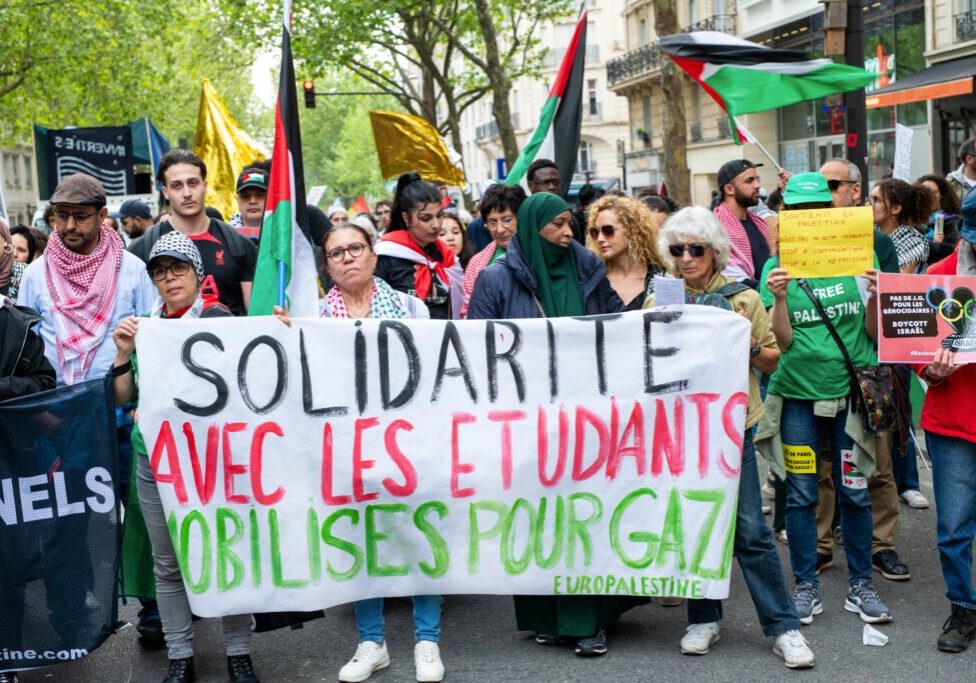Australia/Israel Review
Last Chance for Justice
Aug 1, 2005 | Leon Kofmansky
Beyond the Zentai case
By Leon Kofmansky
Over sixty years after the murder of Jewish teenager Peter Balazs in Budapest, the last of the accused has finally been arrested. If Australian courts find a Hungarian extradition request in order, Perth resident Charles Zentai will stand in the dock, accused of committing the murder along with two accomplices (the other two were brought to justice shortly after the end of World War II). Both the timing and location of Zentai’s arrest – in the world’s most isolated city – is in itself an example of just how expansive and difficult the effort to bring to justice perpetrators of the Holocaust has been.
Only two days after that arrest, the head of the Simon Wiesenthal Centre and famed Nazi hunter, Dr Efraim Zuroff, received information on an additional Nazi war crimes suspect living in the same city. Whether or not that new information is accurate and actionable remains to be seen, but what is clear is that contrary to the belief of many people, the quest for justice for the victims of the Holocaust is not over. The Zentai case, together with other ongoing Nazi war crimes trials and investigations around the world, demonstrate that, even 60 years after the end of the war, efforts to hold perpetrators of atrocities responsible for their actions are still both realistic and valuable.
Zuroff emphasises that the Zentai case could become a significant milestone for Australia, allowing this country to partially reverse its poor record of success in bringing to justice the hundreds of Nazi war criminals who found their way here. Zuroff told The Review that if the extradition does go ahead, “It would be the first time that Australia has taken successful legal action against a suspected Nazi war criminal.” He cites Australia’s track record on Nazi war criminals as “unfortunate” and singles out two cases in particular – those of Karlis Ozols and Konrad Kalejs – saying what happened in both instances is “an absolute travesty of justice.” However, with the Zentai case currently looming, he stressed that “this is really — I hate to sound trite — this is really Australia’s last chance to do the right thing and that’s why it’s so important.”
Bringing someone to trial for a war crime committed over 60 years ago is no easy task – an all too common obstacle is the advanced age and health of the suspect. However, Zuroff insists it remains quite achievable. Since “Operation Last Chance”, a program of monetary rewards for tips leading to the conviction of Nazi-era war criminals, was established a few years ago to hunt former Nazis, Zuroff says he had received the names of 380 suspects. These were primarily from the nine European countries where the operation was officially launched. Out of those 380 names, 79 were subsequently submitted to prosecutors.
After being accused of a war crime, the health of every alleged Nazi war criminal usually follows a predictable path — it rapidly declines. This strange phenomenon was subsequently dubbed “the Zuroffitis syndrome” by none other than Zuroff himself. Commenting on this syndrome, the acclaimed Nazi hunter says, “Our experience has been that whenever a suspected Nazi war criminal appeared to be headed for prosecution they develop all sorts of symptoms. In other words they either exaggerate existing ailments which are usually not that significant or they create imaginary illnesses.” Using Zentai as an example, Zuroff revealed that when the charges against Zentai were originally raised, there was no mention of any health problems and the suspect even expressed a willingness to go to Hungary himself. Yet with the submission of an extradition request by the Hungarian government, he points outs, “Zentai is not saying anything about going back and his lawyers are talking about a serious heart condition.”
Zuroff believes that an effective way of removing the numerous obstacles preventing suspects from facing a trial would be if Australia had adopted or would adopt the American method of de-naturalisation and deportation. Under this method, the US Justice Department’s Office of Special Investigations recently prosecuted Josius Kumpf. Kumpf was a former Nazi SS guard who immigrated to America after the war where he subsequently became a naturalised citizen. The 80-year-old Kumpf is currently appealing a judge’s decision to revoke his citizenship. Since its formation in 1979, the Special Investigations Unit has successfully prosecuted one hundred Nazi war criminals – with Kumpf the one-hundredth. Another suspected war criminal who was stripped of his US citizenship and is currently fighting deportation is Ivan (John) Demjanjuk. Demjanjuk was once accused of being the notorious “Ivan the terrible” and was sentenced to death in Israel. However, the Israeli Supreme Court overturned the sentence, citing insufficient evidence, and he was returned to the US. Nevertheless, once back in America Demjanjuk was tried again in the Federal Court of Cleveland and found to be a war criminal on the basis of his role as an armed guard at two Nazi extermination camps in Poland. In his fight against deportation, the 85-year-old Demjanjuk has displayed all the classic symptoms of “Zuroffitis.”
Zuroff predicted that if the US method of prosecuting and deporting former Nazis were to be implemented here, Australia would still bring a few war criminals to justice, “But since there appears to be no intention or desire to do so, it’s merely a theoretical statement.” (The dominant legal interpretation in Australia is that the legal framework in place when most suspect arrived provides no avenue to allow citizenship to be stripped from anyone who has held citizenship for more than 10 years, though there is a minority opinion among legal professionals that this may still be possible.)
The Nazi hunter is also critical of European countries. Aside from Germany and Poland, Zuroff claimed that European countries were generally not initiating investigations of their own or tracing Nazi fugitives. Instead, he stated, these countries generally only act in reaction to the information presented to them by groups such as the Wiesenthal Centre. One such example is the case of Milivoj Asner, who — until the Wiesenthal Centre exposed him for his crimes — lived peacefully in his native Croatia. During the war-years, Asner was allegedly involved in the deportation of hundreds of Jews, Gypsies and Serbs to concentration camps. After the revelation of his past one year ago, he fled to Austria where he remains in hiding.
After meeting with the President and various senior officials of Croatia, Zuroff says that he expects an indictment and extradition against Asner to be submitted in the next eight to ten weeks. At the same time, Austria is investigating the case and an indictment is expected by the end of the year. Nevertheless, for Zuroff, “the major question right now is whether Austria would agree to an extradition request from Croatia… Austria does not normally extradite its own citizens and it appears that he does have Austrian citizenship, although it is possible it was obtained under false pretences.” If a trial were to go ahead, Zuroff said that he would prefer if Asner were to be put on trial in Croatia where the crimes were committed, “but if he were to be put on trial in Austria, that would also have a certain significance.” If it were not for the information presented by the Wiesenthal Centre, it is almost certain that Asner would have lived out the rest of his days in Croatia without his crimes even having been exposed.
Referring to Zentai once again, Zuroff added, “If the Wiesenthal Centre had not found Charles Zentai and found the evidence against him, the Hungarian government would not have done anything. In other words, the Hungarian government was not initiating investigations, was not looking for Nazi war criminals who hadn’t been prosecuted, or anything of that sort, and the same applies to practically every single European country.” According to Zuroff, the main lobbyists and advocates for the prosecution of Holocaust criminals are the United States, Israel and Jewish organisations. Without pressure from these countries and groups, little or nothing would be done in Europe.
In response to arguments against prosecution citing the age of the suspects and the fact that they are unlikely to be an existing threat to society, Zuroff stresses, “Our argument is that the crimes that they committed are so terrible that they cannot be ignored and they have to be held accountable, because not bringing them to justice is sending the absolute wrong message — which is that if you commit genocide you can get away with it… The passage of time,” continues Zuroff, “in no way diminishes the guilt of the perpetrator…the fact that someone reached an elderly age does not mean that they deserve…not to be held accountable.” Finally, he ended with a compelling argument countering the most common criticisms and misgivings raised by the sceptics — “I think if I had found the person who murdered the grandfather or grandmother of the questioner and that person had reached an elderly age, the questioner would not care if that killer was 83 or 85 or 87, he would want him brought to justice. But every one of these victims is someone’s grandmother or someone’s grandfather or someone’s relative or friend. The victims deserve that an effort be made to bring their killer to justice.”
Tags: Europe






